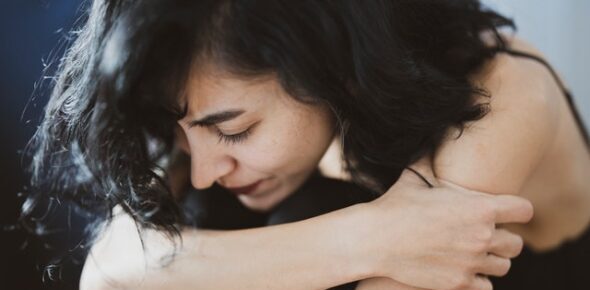
No, relationships cannot be mutually abusive.
Here’s why “mutual abuse” is a myth. In an unhealthy relationship, it’s possible for both partners to act in unhealthy ways. This might look like getting in frequent fights, yelling at each other, or purposefully hurting the other’s feelings.
But abuse is a pattern of behavior where one partner gains power and control over the other. In an abusive relationship, one partner has more power than the other. Often, the abuser has considerable control of the relationship and their partner’s life. A relationship cannot be mutually abusive because it is not possible for both partners to have the same amount of power and control over the other at the same time.
Despite this, the myth of mutual abuse still exists.
Victims of abuse might yell at, hit, throw things at, insult, or otherwise harm their abuser. Sometimes, victims do this to protect themselves or escape a scary, dangerous situation. Remember: protecting oneself is never abuse.
Other times, the victim may be trying to gain some control in a relationship where they have no power or other options. Those experiencing abuse often feel trapped, alone, and overwhelmed, and have had their sense of self-worth ground down. For victims and survivors, fighting back is a way to protect themselves and reclaim even just a bit of independence.
For people not familiar with the dynamics of abusive relationships, this might look like abuse.
Abusers use this to their advantage. They may try to shift the blame to their victim by saying things like, “You made me do this,” or “But you also hit me!”
Victims who have fought back may even blame themselves for their abuse. This self-blame can stop them from asking for help.
In court, those who have committed abuse present themselves as rational, grounded, and in control. Meanwhile, the survivor—who has often had their identity chipped away at and is dealing with the effects of trauma—is painted as erratic, out of control, and hysterical.
Learning about both healthy relationships and abuse can help young people—and people of all ages—recognize abuse when it happens, support victims and survivors, and ultimately build healthy relationships based on love and respect.
If you’re not sure whether you’ve acted abusively or are reacting to being abused, check out “Am I abusive too?” from Love is Respect and use the resources below. Talking with someone you trust can help you understand what you’re feeling and what you’re going through.
If you’re worried your relationship is unhealthy, ask yourself:
- Do I have power in the relationship, or does only my partner?
- Do I feel unsafe physically, emotionally, or sexually when I’m with my partner?
- Have I been spending significantly less time with my friends or family, or lost friendships, since the relationship began?
- Do I feel guilty when I don’t spend all of my time with my partner?
- Do I feel like I have to keep secrets about my relationship? Do I feel like I can’t tell the truth about it?
If you think your relationship might be unhealthy or abusive, remember that you are not alone.
You can call the Love is Respect hotline at 1-866-331-9474 or text loveis to 22522 to talk to a trained peer advocate. You do not need to be in a crisis to call a hotline. You can also learn more about healthy relationships and dating abuse on the Love is Respect website.
If you feel you can, tell someone, like a school counselor, parent, or teacher. If you feel like you can’t talk about what you’re going through, you can still work to keep yourself safe. Create a safety plan. You can call the National Domestic Violence hotline at 1-800-799-7233 or, if you’re in NYC, speak to someone anonymously by calling NYC Well at 1-888-692-9355.
Reviewed by Rachel Colon, LCSW, and Edin Wall, LMSW, EdM.


